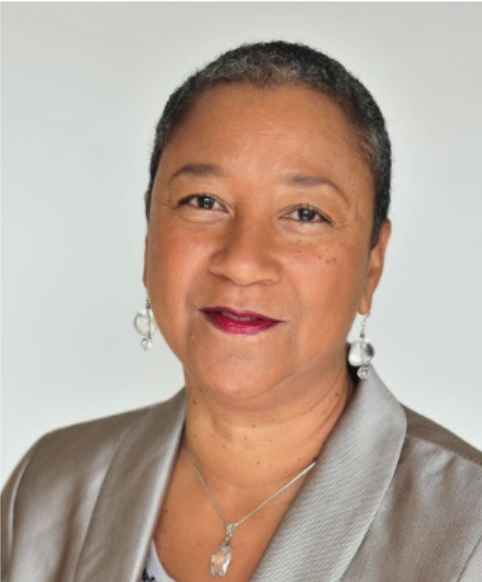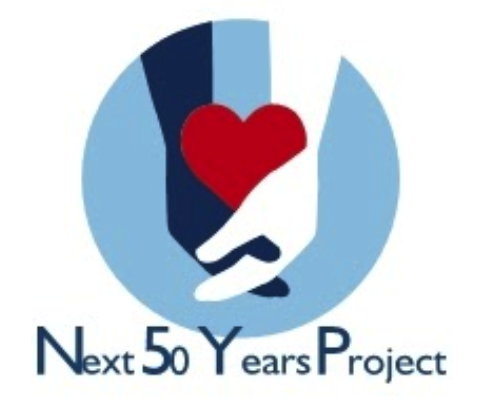Aliah MaJon answers the question:
What is the nicest thing a non-family member has ever done for you?
 Well, it's kind of a long story, but I'll make it short. That person's name is Dr. Eric Witherspoon. And I especially wanted to bring him to this particular opportunity today because Eric passed away at the beginning of the COVID-19 pandemic. But he was known all around as one of the forerunners, certainly a pioneer in the area of equity in education. And the nicest thing that he did for me was bring me to an organization that would normally not even be interested in who I am and what I have to offer.
Well, it's kind of a long story, but I'll make it short. That person's name is Dr. Eric Witherspoon. And I especially wanted to bring him to this particular opportunity today because Eric passed away at the beginning of the COVID-19 pandemic. But he was known all around as one of the forerunners, certainly a pioneer in the area of equity in education. And the nicest thing that he did for me was bring me to an organization that would normally not even be interested in who I am and what I have to offer.
He worked for a national educational organization that supports teachers in school districts, and everybody on their team had to be an actual certified teacher and/or an administrator, which was a certified teacher who moved to the next level. And Eric wanted to bring into the arena of equity in education, the topics of trauma and grief recovery, and all of the things that are related to restorative practices, but that are very personal in terms of a child or student's background.
And so Eric and I worked together for a solid year, literally for a solid year, to convince his superiors that if they didn't look at, at least look at what I had to offer around the area of trauma-informed practices in schools, that they were going to be missing a really wonderful opportunity to bring something very valuable to their clients.
So I had a conversation with Eric every month for a solid year, and that's not an exaggeration. He was like, "Well, I talked to them and they said this. And they're open to it, and they said maybe." And so, one day I got a call. Actually, the night before, he said two of the leaders of the organization — I'm not using their name on purpose; I just want to talk about Eric, Dr. Witherspoon — are going to be in the LA area and they would like to meet you.
And so I went to that interview, and they were impressed with what I had to say about the connection between trauma and a student's success. And in particular, the connection between trauma and equity in education. And even more specifically, the connection between trauma and freeing up young people of color who are victims of racism and the things that happen because of disenfranchisement, and how they really are performing academically, and how the future that they're building is going to be impacted by having this freedom, this healing take place, and that it would just be a much brighter future. And I made them excited in that interview.
And so those two leaders said to me, "Well, we love what you're talking about. And we think it has great value. But you know, we don't hire anybody, and we're talking about independent contractors, but we don't have anybody on our team who don't have a credential in the area of education, and who haven't had any experience in classrooms and/or as administrators. And so we'll think about this because we like you."
And so I went home and I called Eric and I said, "Well, the interview went really well. I think they liked me a lot. And they didn't say yes, but they didn't say no either." And Eric said, "Okay, just hold the vision in your heart that the service that you want to provide, that you and I have been talking about for a year, is going to come to pass. Because that's what I did." And he was someone who actually, when he first started working for that organization, their focus had been math and literacy. And then he brought equity into the mix and he became the lead for that particular offering through that organization. And he was the regional director in the West, here in California, Oregon, Washington state, and so on and so forth, around the topic of equity.
So here's another part of this story that's really wonderful for me to share. And Eric, I hope you can hear me up there wherever you are, and I like to just use the word heaven because it's a sweet-sounding word. So the next day, literally the next day, they were here in the LA area, the leaders of that organization. They were here in the LA area talking to some potential clients, one of them being the Compton school district. And so the next day, I was meditating on, I really wish these folks would be open to what I would like to bring.
And I went to my computer and I started to pull out all the things that I knew about Compton. And I already was aware that Compton school district had been before a judge because there was a case against them, the whole school district in Compton, California here, about a young person who had been expelled from school and actually legally prosecuted for trespassing because he was homeless and had been sleeping on the roof of his high school. They caught him, they found him there after he had been sleeping there for many days, and they expelled him from school and actually took him to juvenile. And there was an organization who brought that case before a judge and the judge said the Compton school district must, it's mandated, they must go through trauma-informed training.
And so, lo and behold, the next night I was sitting there thinking about this and had gone to my computer and did all this research. And I literally texted one of the leaders who had given me their card. I texted them and said, "There's something important that I think you should know." And I sent some links about Compton, the school district, and what was going on with this particular case, and the young man, and other students as well, who had finally actually come forward, and said the practices in the Compton school district, they need some learning over there because the young people are actually suffering from trauma and nothing's being done about it.
And so they went to their board meetings. So they literally called me immediately when I texted them, and I picked up the phone and they said, "Is this real?" I said, "Yes, this is real." And they said, "Well, we're just about to go into the board meeting. It's like 6:45pm. And the meeting is at 7:00pm. This could not be a more perfect time for you to tell us about this." And I said, "Well, I'm here if you need me to help."
And so what happened was they went to the board meeting. They presented that they knew that there was a case against the school district and that it was about trauma and trauma-informed practices needing to be trained in terms of those schools there. And they told the folks at the meeting that they could handle it, that they could take care of it. And so Compton said, "Great. You're hired. You're onboard."
So they called me the next morning and they went like, "We don't know what to do. How do we actually contract for this?" And we figured it all out. And the long and the short of it, the nicest thing that Eric Witherspoon ever did for me was hook me up with the Compton school district. So for a whole solid school year, I trained both students and adults, educators, some vice principals, some counselors, some principals, and certainly lots of teachers on trauma-informed practices. And I did it with seven middle schools and three high schools for a whole solid school year.
And so that was the nicest thing that Eric Witherspoon could have ever done not only for me, but for all of the young people who are suffering from trauma, especially young people of color. So that's my story.
 Dr. Aliah K. MaJon is known for her work with both adults and youth who are facing future-defining crossroads, the devastation of loss, and the disadvantage of a traumatic background. Her methodologies are informed by firsthand experience growing up in the inner city of Detroit and losing her only child to suicide. Dr. Aliah also believes that one of the greatest hindrances to the success of disenfranchised populations in the United States is our country’s history of the racial divide. And, she is committed to harnessing her decades of experience addressing bias and inequality as a diversity trainer, consultant, United Nations delegate, facilitator of citizen-police dialogues, and creator of “Racial Healing Brain Trusts,” which began in 2013 with the ambitious pilot program she spearheaded called "A National Conversation on Race."
Dr. Aliah K. MaJon is known for her work with both adults and youth who are facing future-defining crossroads, the devastation of loss, and the disadvantage of a traumatic background. Her methodologies are informed by firsthand experience growing up in the inner city of Detroit and losing her only child to suicide. Dr. Aliah also believes that one of the greatest hindrances to the success of disenfranchised populations in the United States is our country’s history of the racial divide. And, she is committed to harnessing her decades of experience addressing bias and inequality as a diversity trainer, consultant, United Nations delegate, facilitator of citizen-police dialogues, and creator of “Racial Healing Brain Trusts,” which began in 2013 with the ambitious pilot program she spearheaded called "A National Conversation on Race."
 Her involment in such activities inspired her to launch The Next 50 Years Project to teach cultural intelligence and to pioneer tools that build bridges across human difference. Dr.Aliah’s core message is: “Our Destiny is About Our Collective Evolution.” She also proudly holds a trademark for a groundbreaking coaching methodology called SOUL TECHNOLOGY®, where she introduces people to the other half of their intelligence and demystifies what it means to benefit from inner knowing. Her approach is comprehensive and future-focused, and she supports people to overcome obstacles and begin to excel utilizing her expertise in the areas of transpersonal psychology and personal growth, combined with her extensive experience in group work and as a consulting professional.
Her involment in such activities inspired her to launch The Next 50 Years Project to teach cultural intelligence and to pioneer tools that build bridges across human difference. Dr.Aliah’s core message is: “Our Destiny is About Our Collective Evolution.” She also proudly holds a trademark for a groundbreaking coaching methodology called SOUL TECHNOLOGY®, where she introduces people to the other half of their intelligence and demystifies what it means to benefit from inner knowing. Her approach is comprehensive and future-focused, and she supports people to overcome obstacles and begin to excel utilizing her expertise in the areas of transpersonal psychology and personal growth, combined with her extensive experience in group work and as a consulting professional.
Catalyst is produced by The Shift Network to feature inspiring stories and provide information to help shift consciousness and take practical action. To receive Catalyst twice a month, sign up here.
This article appears in: 2020 Catalyst, Issue 16: Racial Justice and Healing



